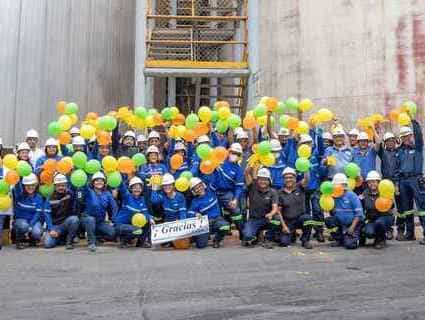Army captain to corporate leader: Meet Bethany May
Read Time: 4 minutes
November 09, 2023
“I feel like I have a purpose again.”
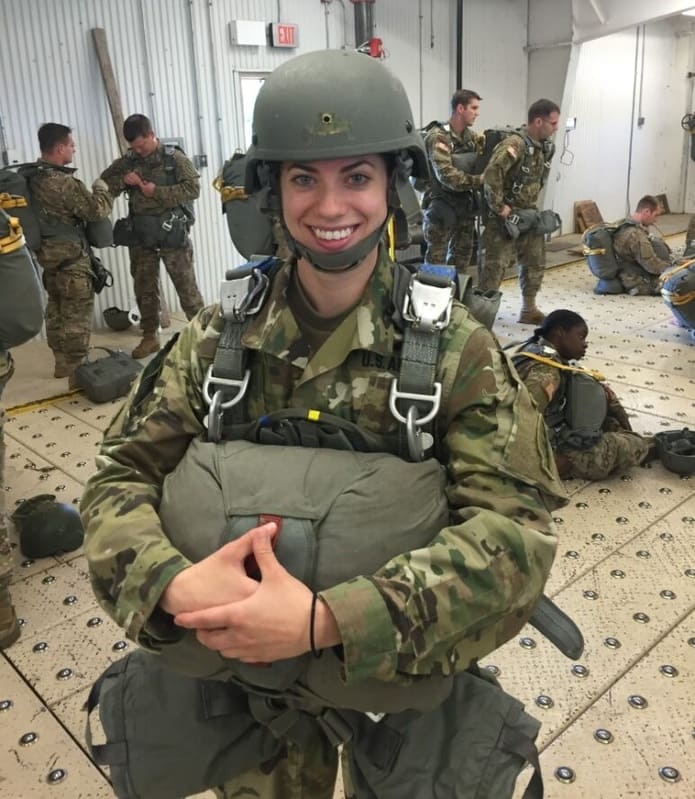 Captain May getting ready for a parachute jump from a CH-47 Chinook helicopter.
Captain May getting ready for a parachute jump from a CH-47 Chinook helicopter.
That’s what struck Bethany May when she joined the ranks of Cargill in 2017. Bethany was coming off multiple overseas deployments as an Army captain in a special forces battalion — a unit of more than 1,000 soldiers.
With Cargill, she found an opportunity tailor-made for her background. She could draw on her abilities in intelligence analysis, educational background in international relations, and most importantly to Bethany, her dedication to a worthy mission that was much bigger than herself.
“One thing a lot of veterans struggle with when they leave the service is finding a purpose, something beyond themselves,” she says. “Working with Cargill, I have my sense of purpose back. We nourish the world. I’m proud to be part of something bigger again.”
Military service might seem very different from the corporate world. But look more closely and you’ll find that those who’ve served embody traits that companies want: teamwork; a strong work ethic; a global, diverse and inclusive mindset; and grace under stress.
Bethany brought something else, too: Her military intelligence, scenario planning and leadership experience are invaluable in her current role. Bethany is a program manager in enterprise risk management. She identifies risks across Cargill and helps us prepare for challenges we might someday face. Not unlike an Army captain.
We sat down with Bethany to learn more about how her military experience led her to our company.
Q: Teamwork and trust are crucial in the military and the corporate world. How do you create a trusting team environment working in risk?
A: “Building trusting relationships with my stakeholders at Cargill is crucial to my work because, at times, I have to deliver recommendations that can be inconvenient. I need them to trust my analysis and my assessment so we can navigate through things like geopolitical issues and natural disasters more effectively.”
Q: We’ve heard from other leaders that leaning on their values makes decision-making easier. Do you find that to be true for you, too?
A: “Oh, absolutely!
We've got two young children. My husband and I talk constantly about, ‘What are we modeling for them? Are we modeling hard work? Are we modeling how we treat other people? Does what we do have a greater purpose beyond ourselves?’
In the military, it's not just about us. We have a greater purpose in serving the people around us. We have a greater purpose in our mission.”
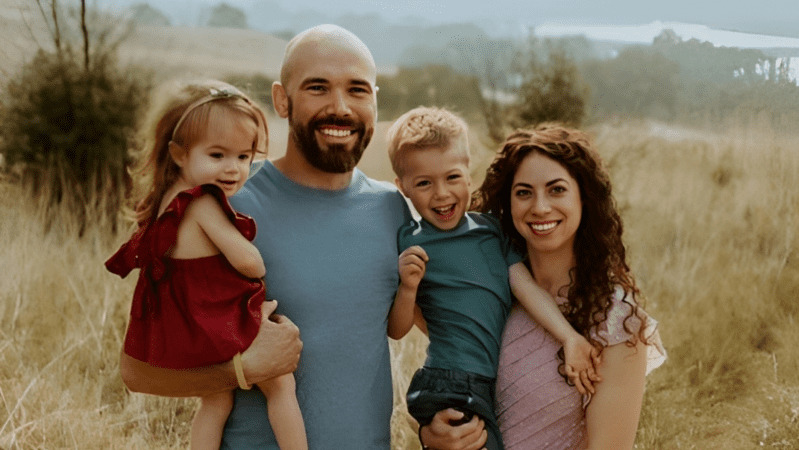 Bethany May and her family.
Bethany May and her family.
“I’ve found that again at Cargill. In this role, I am talking about how to protect critical pieces of the global food supply system that are critical infrastructure for the world. When we lay out our risk scenarios and what their impacts could be, we always start with people first, just like Cargill does.”
Supporting veterans and military families
Inside our workplace, Cargill has an employee resource group dedicated to supporting veterans and military service members. One of nine business resources groups for our 160,000 employees, the Veterans Military Support Network (VMSN) recognizes, supports and encourages U.S. military service members, veterans and their families. The group also focuses on recruitment and retention, and meeting the unique needs of veterans in the workforce. Learn more about Cargill's diversity, equity and inclusion efforts.
Q: As an Army veteran, what advice would you give managers who have a military veteran on their team?
A: “Many veterans manage teams and people at a much earlier age than civilians. So, it’s understanding that a 20-year-old veteran may have more personnel management experience than someone 15 years into their corporate career.
Also, veterans use ‘we’ more than ‘I,’ so it might be difficult for them to take credit for the work they did. You might need to push them a little.”
Q: Speaking of leadership, does anybody stand out as a mentor you had in the military?
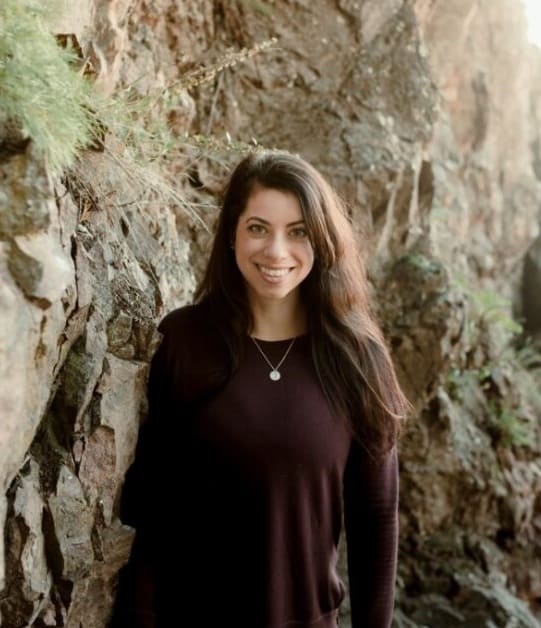 Bethany May at the North Shore in Minnesota.
Bethany May at the North Shore in Minnesota.
A: "I think we all remember our worst and best bosses. I had those back-to-back in the Army. One commander treated us poorly. He was immediately followed by the next one who was a model of how to treat others well. And seeing the immediate, literally overnight, improvement in unit culture and quality of work was compelling.
I remember them both, and I strive to be the latter.”
This interview transcript has been lightly edited for clarity and brevity.
More stories
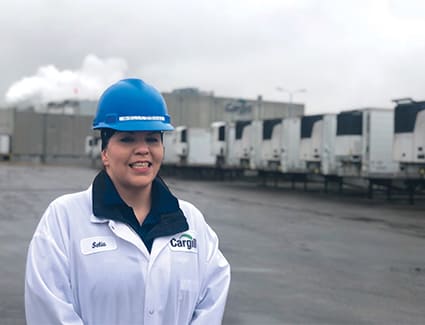
Making the cut: How Cargill’s first female fabrication manager is forging new paths
Twenty-one years ago, Selia Perez followed in her father’s footsteps when she applied for her first job at Cargill.
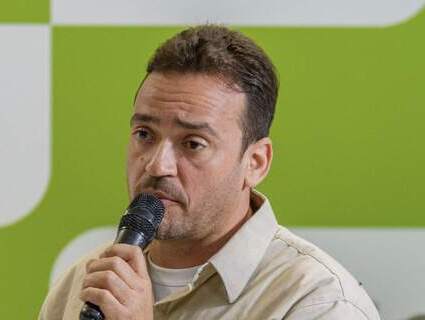
School dropout to bilingual leader. Meet Marconi Vieira.
His career began as a janitor. He became a bilingual leader at our largest plants in Brazil. What makes Marconi Vieira proudest?
Global Day of Inclusion: 4 stories from around Cargill
At Cargill, we reinforce our commitment to building a stronger, more diverse community. Here’s how 4 colleagues around the world do it.
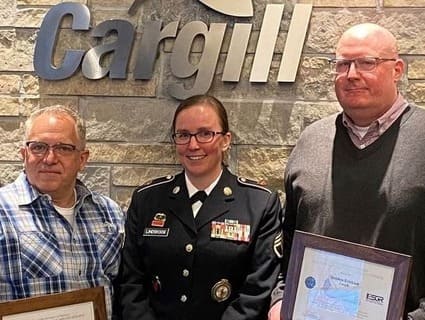
Her first management role? At age 20 during a deployment to Kuwait. Meet Cargill veteran Liz Lindskoog.
Liz is an IT product manager by day and a U.S. Army Reserve member by night.

